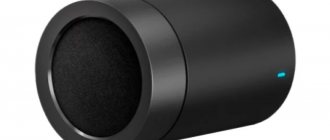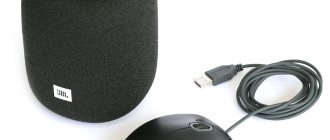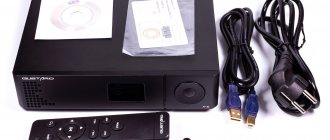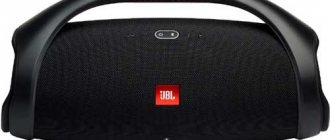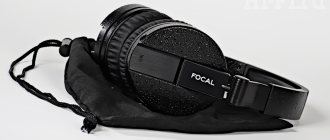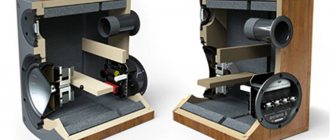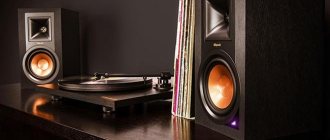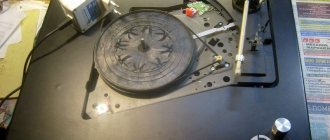Berkeley Alpha USB review and comparison with Hidra Z+ PM
I'll start right away with the main thing. From the first connection and listening to the first track, I was captivated by the “wow” effect. What immediately shocked me was the effect of volume and a pronounced stereo effect, 100% immersion in the material being listened to, the acoustics seemed to dissolve in space (on Jean-Michel Jarre), and there was only music around you. I wonder how long the shock will last and whether the fairy tale will end? Let's listen further. Now it’s clear what many people wrote about - when included in the Berkeley path, it changes the sound of the system very noticeably. The effect is comparable to replacing the DAC and amplifier in the system. It feels like I'm listening to my acoustics on a completely different system. Strange! I didn’t think that one box could make all the components in its repertoire play. It is absolutely obvious to me that you need to build your path only after purchasing Berkeley Alpha USB. Joke! However, maybe it's not such a joke after all. After an hour of listening, you get the strong feeling that the Berkeley is not only a converter, but also a musical conditioner or filter for the entire system. For some reason, the green light in front evoked parallels in sound with the system from Naim. I thought it was some kind of nonsense. I covered this intrusive flashlight with a piece of paper and the perception of the system changed a little. Yes, it seemed so. So much for the psychological aspects of perception. Now I seem to have started to hear my DAC and VUS more. I decided to play around with the power cables and was again shocked at how significant their influence was. Everything previously said by other Berkeley owners is confirmed. Power cables connected to Berkeley can seriously change the sound of the system from soft, calm and rounded presentation (with Silent wire AC 38) to bright and aggressive (furutech alpha 55n on Oyaide P46 connectors). I just don’t know if this is good or bad. Honestly, for me this playing with cables will soon drive me crazy (that’s a hydra with a power supply - no effect, turn it on and listen). I installed a couple more cables, a silver-plated Nordost Vishnu and a silver Crystal Clear Reference and realized that with silver the converter sounds worse - not so expressive, less spacious and open. Silver seems to be detrimental to it, at least in my system. Not expected! I left its power supply for now on the Alpha 55 truck. I conclude for myself that I need to buy a super neutral and informative Fisch P-7 for it. Expensive of course, but what to do?! Yes, the price category of the system is growing). The guitar and live music sounds excellent, the solo vocals also sound expressive and melodious, and the choral performance also deserves praise. I listened to the tracks from the test jazz disc with emotion. Musical, spacious and believable. Like! Let's move on. The classics also sound convincing. Metal also plays with drive. Very good! The bass is fast, accurate, deep. The middle is very transparent, the abundance of details is amazing, there is no haze or veil at all. On recordings that are already painfully familiar, you begin to notice sounds that are new to you. Spectacular! The high ones seemed somewhat rough, somewhat overly velvety, maybe a little blurry, a little bright and intrusive. I'm using a furutech alpha 55n power cable with Oyaide P46 connectors. Otherwise there are no complaints. The device breathes more air into the system, the sound is spacious and open. At the same time, I didn’t notice a lack of meat on the metal, no mess. Rhythmic, quite driving, everything is as it should be. The device does not smooth out after-sounds and subtle musical matters and conveys them well in my opinion. The engager, as I wrote above, is present. However, after listening for a long time, I would note some dryness in the presentation as a whole. Having good knowledge in the field of “sound” of various materials, I screwed Oyaide P79 forks to my Shunyata research Hydra and installed them on the device instead of furutech alpha 55n Oyaide P46, voila - there is practically no dryness. It has become even more melodic and musical. I didn’t stop there and powered it from another outlet through a regular extension cord and the sound improved even more. I think it would be even better to have a good long cable included for such purposes, but it will be a bit expensive) The effect on the Berkeley Alpha USB converter of power management is simply surprising. You will be tortured to adjust the sound if there is no dedicated audio. As for the nuances, I would also note that electronic music performed by him is somewhat inferior to other genres because runs the risk of breaking down into sterility and analyticity on my path, yet again it plays a little dryly (compared to Hydra). Here I’m sinning on leema because... at higher resolution files it has this tendency.Can we conclude that I'm staying with Berkeley and parting ways with Hydra? Not at all! Hydra has its undeniable advantages. Now, after Berkeley, it becomes clear to me that Hydra does not add its own flavor and color to the sound (subjectively, of course), but simply cleans the signal from the USB from digital noise. At the same time, the system with hydra does not lose its individuality. Connecting the hydra in this case resembles connecting a normal SD transport to the DAC. Yes, the Hydra does not have such a transparent and open middle as the Berkeley, but it delivers sound material densely, dynamically, softly, quite detailed and volumetric, with half-sounding and without dryness. The sound turns out to be very comfortable, or music lover (with Beckley there is a bias towards an audiophile presentation). And although live instrumental music does not play so expressively (possibly because of my DAC), I don’t really want to switch the system back to Berkeley. Someone wrote that Hydra plays analytically. I don't have any analytical skills. It plays musically and involvedly, and most importantly it’s comfortable, which sets you up for long listening sessions. Perhaps this is the synergy between Hydra and Leema DACs. Don't forget about the hydra's price tag. With the purchase of a good power cable to Berkeley, the price difference may change not in favor of alpha.
Bottom line: For now I leave both devices in my system. Well, I can’t make a clear choice. But I can confidently say that the devices deserve the closest attention and are recommended for those who want to get high-quality sound from a PC via USB.
A good atlas BNC - RCA adapter and a power fish R-7 are on the way. I would like to remove even a hint of dryness from Berkeley and comb the high frequencies. To be continued…
System: Source Macbook Air 11 player Аudirvana Converter USB cable AudioQuest Diamond DAC Leema DAC + network adapter Fisch Performance P-7 (on factory plugs) + interconnect Supra Sword Special Edition XLR Coaxial DH-labs Silver Sonic D-750 RCA Us Plinius hiato + network adapter furutech alpha 55n on Oyaide P46 connectors Acoustics PMC OB1i + speaker cable Shunyata Black Mamba
Listened material: Images from my branded discs: A-ha Scoundrel days A-ha - Memorial beach (Japanese) Bryan Farry - Taxi Diana Krall Mylene Farmer - L'antre Yello - Motion picture Iron Maiden - Fear of the dark Rammstein - Rosenrot Classic (I posted the collection there) The collection “All This Jazz” (I also posted it here)
DSD files: Carpenters - The Singles 1969-1973 Michael Jackson - Thriller (1982) Sarah Brightman - La Luna iso SACD Schiller - Leben (2004) [SACD] (ISO)
High resolution flac files: a-ha - Hunting High & Low [24-192] Jean-Michel Jarre - Essential Recollection [24_48]
DSD files were played at a maximum resolution of 24/192 because leema does not support this format.
This is how the pyramid turned out

